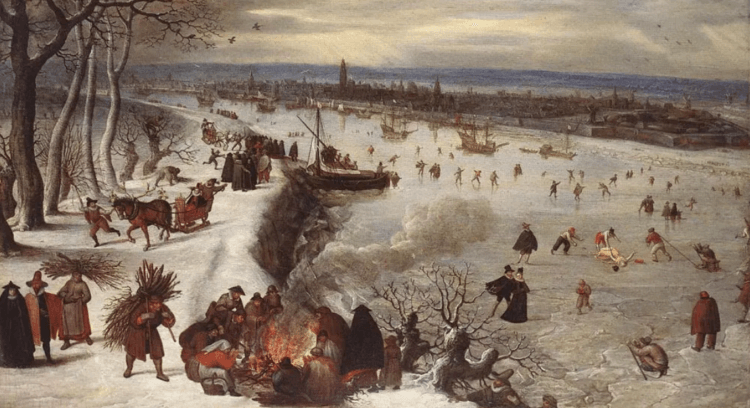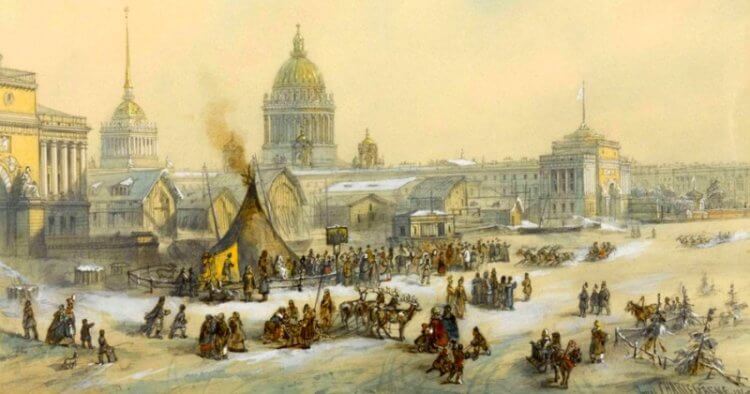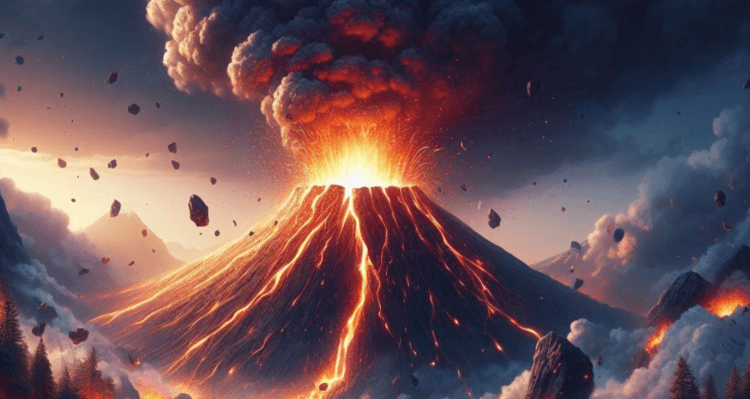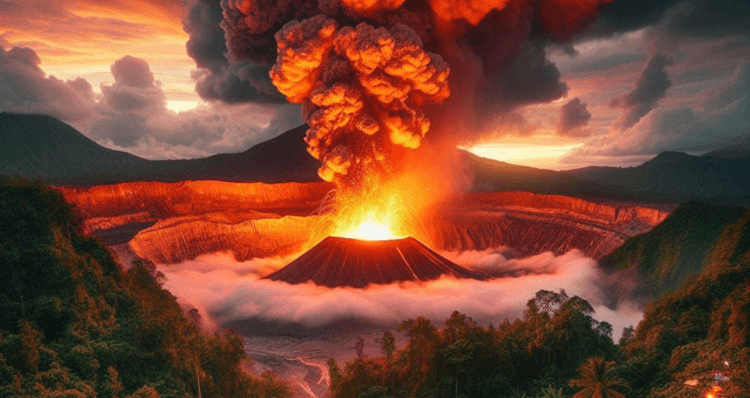We associate summer with hot weather, lush greenery and blue skies. It comes every year and, it would seem, it cannot be any other way. However, there was a year in the first half of the 19th century when summer did not occur in some areas of the Northern Hemisphere. The year 1816 was called “the year without summer.” The unpleasantness of this event was not only the absence of the usual warmth in the summer months, but also many negative consequences. The abnormal cold caused a catastrophic crop failure. In the spring of 1817, grain prices increased tenfold, and famine broke out in many countries. However, only more than a hundred years later people began to guess the reasons for this event.

In 1816, summer did not come in Western Europe and the United States. Image source: artchive.ru
“A Year Without Summer” — what is it
The winter from 1815 to 1816 was the same as usual. However, in March the temperature continued to remain wintry, for example, in many US states there were severe frosts during this period. Of course, March can be cold, but it was followed by equally cold April and May. Moreover, they brought with them an unnatural amount of rain and hail. Most likely, even then people realized that something unnatural was happening with the weather.
In June and July, there were frosts in America, and even snow fell in some cities, including New York. Rivers remained frozen in Pennsylvania in midsummer. Snow also fell in northern Europe. Germany suffered from powerful storms, with many rivers overflowing their banks. In Ireland it didn't stop raining for eight weeks straight. US President John Quincy Adams, who was then ambassador to Great Britain and living in London, wrote in his diaries that freezing rainfall accompanied by thunder prevented him from leaving his house in early July.
However, summer was not absent everywhere. For example, in the Russian Empire the temperature was even higher than usual. In Asia, the decline in global temperatures has disrupted the monsoon season, leading to droughts.

Snow fell in many European cities in the summer of 1816. Image source: BigPicture.ru
It must be said that there is a lot of written data about the summer of 1816, and there are also many funny incidents associated with it. For example, the English writer Mary Shelley spent the summer with friends in a villa near Lake Geneva. The weather was so bad that vacationers were often unable to leave. So they decided to come up with creepy stories to tell each other.
As a result, Mary Shelley wrote the story “Frankenstein, or the Modern Prometheus,” and John Polidori wrote “the first vampire story.” Also, the events of 1816 are reflected in Byron's poems, in which he often mentions gloomy skies and constant bad weather.
Why did the “year without summer” happen
For a long time, the sudden global cooling in 1816 remained a mystery. It was only in 1920 that the American scientist William Humphreys suggested that the “year without a summer” was associated with the April 1815 eruption of Mount Tambora, located on the Indonesian island of Sumbawa. It was a very powerful eruption that killed more than 70 thousand people. This was the largest number of casualties in human history due to a volcanic eruption.

The cause of the cold summer was a volcanic eruption in the Southern Hemisphere
According to scientists, the power of the volcano was seven on the Volcanic Eruption Scale. The emission of ash into the atmosphere was 150 cubic kilometers. Presumably it was he who caused the onset of volcanic winter in the northern hemisphere. Moreover, this effect was felt for several years.
Recall that volcanic winter occurs for the same reason as nuclear winter, which occurs after a nuclear war – tiny light particles of ash rise into the stratosphere and remain there for a long time, blocking sunlight, which ultimately leads to cooling. Additionally, a drop in temperature can also occur due to the release of sulfur dioxide. Together with water, it forms sulfuric acid, which reflects solar energy, preventing it from warming the planet.

Don't forget to subscribe to our Zen and Telegram channels so you don't miss the most interesting and incredible scientific discoveries!
And although there is no information about this eruption in written sources, its influence on the weather was no less than that of Tambora. As a result of the combined action of both eruptions, the years 1810-1819 became the coldest in at least the last 550 years. Finally, we note that humanity needs knowledge about such events not only to satisfy curiosity. They warn us about what may happen in the future, not only due to a volcanic eruption, but also nuclear war if it happens. You can read more about this at the link.